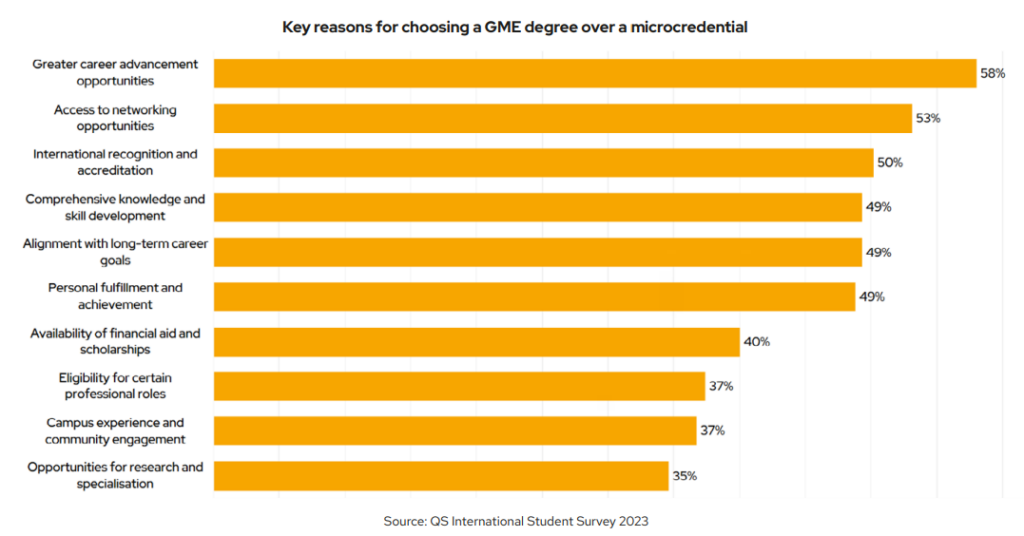
The evolving educational preferences of Generation Z are significantly reshaping the landscape of graduate management education (GME), according to a new QS report.
Titled “Business school applicant trends and motivations in 2024”, the report uses QS International Student Survey data and in-depth interviews to show the reasons students are choosing to study at a business school. Based on over 11,000 responses in 2023, and a three-year total of 28,010 responses, our study is among the most extensive of its kind, providing a global overview of GME candidates’ preferences. 54% of responses came from Generation Z individuals – born between 1997 and 2002, highlighting the growing importance of understanding Generation Z’s wants and needs in business education.
Below is just a snippet. Access the full report:
Why do students choose a GME degree over a microcredential?

Generation Z now represents a significant portion of business school candidates. Their approach to education is markedly different from previous generations, with a pronounced inclination towards certificate courses and microcredentials. This shift is driven by their desire for education that is not only flexible but also directly aligned with the current job market demands.
However, QS data indicates that while 58% of applicants believe traditional degrees offer superior career advancement opportunities compared to microcredentials, a significant 53% view the networking opportunities provided by degree programmes as a decisive factor in their educational choices.
Generation Z’s preference for stackable, extendable courses allows them to balance their education with ongoing work commitments, reflecting their need for continuous learning and adaptability to changing career landscapes. This trend has compelled business schools to innovate their curricula, making them more adaptable to the evolving needs of this generation.
“The future of business education lies in our ability to merge academic rigour with the practical skills demanded by today’s world.”
Daniel Kahn, QS Senior Insights Specialist (GME)
According to the survey, a notable 75% of applicants interested in hybrid or online GME programmes are choosing these formats primarily to facilitate working while studying. This statistic underscores the high demand for flexibility in GME programmes. Furthermore, 55% of the applicants, marking the second highest preference, value a GME degree for the opportunity it provides to develop new skills that are directly applicable to their future careers. This trend highlights a growing emphasis among candidates on understanding and acquiring specific skills through their education, which they perceive as essential for job market success.
This further emphasises Generation Z’s practical approach to education. Business schools are therefore facing the challenge of aligning their offerings with these emerging preferences, incorporating technological savvy, global perspectives, and a focus on social change to cater to this new generation of students.



